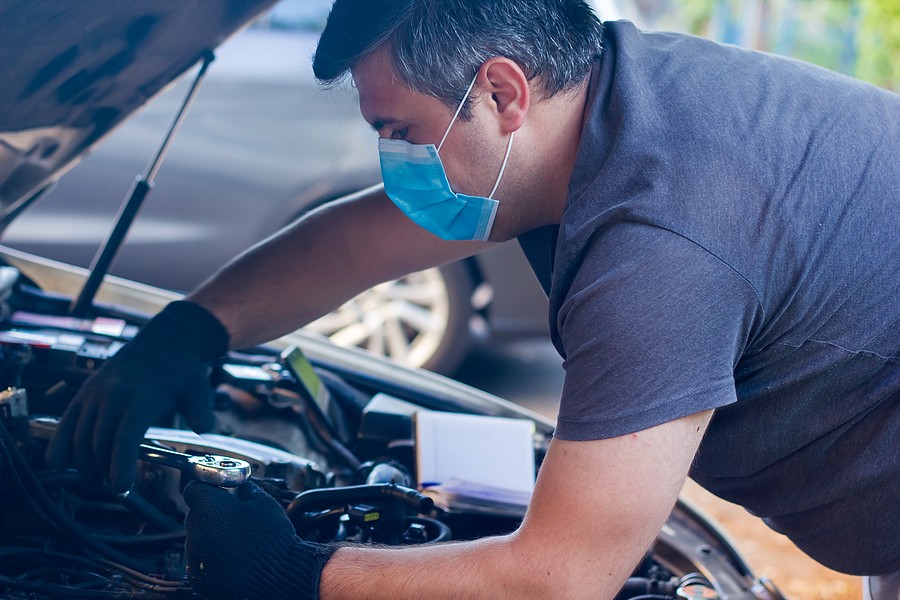When your car's engine is unable to rotate freely, it is said to be “locked up.” This can be caused by a variety of issues, such as a seized piston, broken timing belt, or malfunctioning bearing. An engine lock up can cause significant damage to your vehicle and may even require a complete engine rebuild or replacement. In this article, we will explore the symptoms, causes, and solutions for an engine lock up, as well as ways to prevent it from occurring. By understanding these issues, you can better protect your vehicle and keep it running smoothly.
What Does it Mean When Your Engine is Locked Up?
An engine lock up refers to a situation where the engine is no longer able to rotate freely. This can be caused by various factors, such as a seized piston, a broken timing belt, or a malfunctioning bearing. When an engine lock up occurs, it can cause significant damage to the vehicle and may even result in the engine being completely destroyed.
Understanding the Symptoms of an Engine Lock Up
There are several symptoms that may indicate that your engine has locked up. Some of the most common symptoms include:
- Difficulty starting the car: If the engine is locked up, it may be difficult or even impossible to start the car. This is because the engine is unable to rotate and generate the necessary power to turn over.
- Strange noises coming from the engine: If you hear strange noises coming from the engine, such as knocking or grinding, this may be a sign that the engine has locked up.
- Reduced performance: If the engine is locked up, it will be unable to perform at its normal capacity. This may result in reduced power and acceleration, as well as poor fuel efficiency.
- Smoke or steam coming from the engine: If you notice smoke or steam coming from the engine, this may be a sign that the engine has overheated due to a lock up.
- Vibrations or shaking: If the engine is locked up, it may cause vibrations or shaking in the vehicle.
Understanding the Causes of an Engine Lock Up
There are several factors that can cause an engine to lock up. Some of the most common causes include:
- Seized piston: A seized piston occurs when the piston becomes stuck in the cylinder and is unable to move freely. This can be caused by a variety of factors, including lack of lubrication, overheating, or contaminants in the engine.
- Broken timing belt: The timing belt is a critical component of the engine that helps to synchronize the movement of the pistons and the valves. If the timing belt breaks, it can cause the engine to lock up.
- Malfunctioning bearing: Bearings are responsible for allowing the various moving parts of the engine to rotate smoothly. If a bearing fails or becomes damaged, it can cause the engine to lock up.

Solutions for an Engine Lock Up
If you suspect that your engine has locked up, it is important to have it checked by a mechanic as soon as possible. Depending on the cause of the lock up, the solution may involve repairing or replacing damaged parts, such as the timing belt or bearings. In some cases, it may be necessary to completely rebuild or replace the engine.
Preventing an Engine Lock Up
There are several things you can do to help prevent an engine lock up from occurring. Some tips include:
- Regular maintenance: Ensuring that your vehicle receives regular maintenance, including oil changes and tune-ups, can help prevent issues that may cause an engine lock up.
- Proper lubrication: Proper lubrication is essential for preventing an engine lock up. Be sure to use the correct type and amount of oil for your vehicle.
- Avoid overheating: Overheating can cause severe damage to an engine, including a lock up. Be sure to keep an eye on the temperature gauge and address any overheating issues as soon as possible.
- Avoid contaminants: Contaminants, such as dirt or debris, can cause damage to the engine and may lead to a lock up. Be sure to keep the engine clean and free of contaminants.

Conclusion
In conclusion, an engine lock up is a serious issue that can cause significant damage to your vehicle. It is important to be aware of the symptoms and causes of an engine lock up, and to take steps to prevent it from occurring. By following proper maintenance procedures and taking care of your vehicle, you can help ensure that your engine stays running smoothly and avoid costly repairs.



